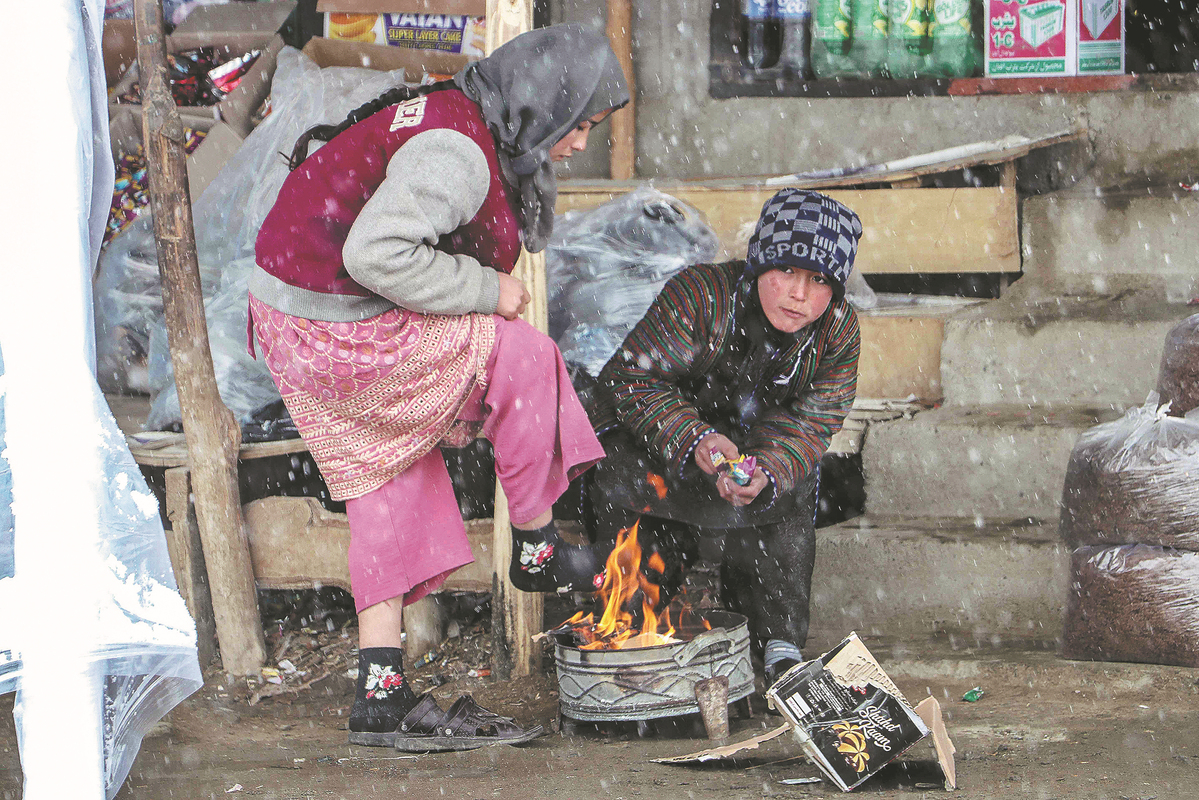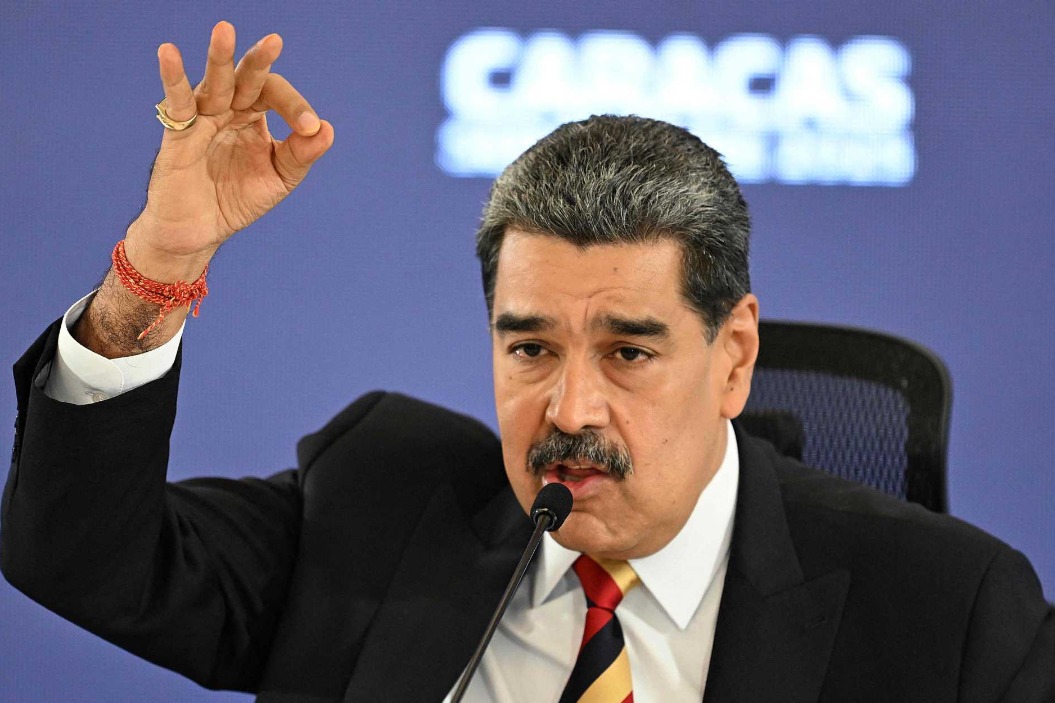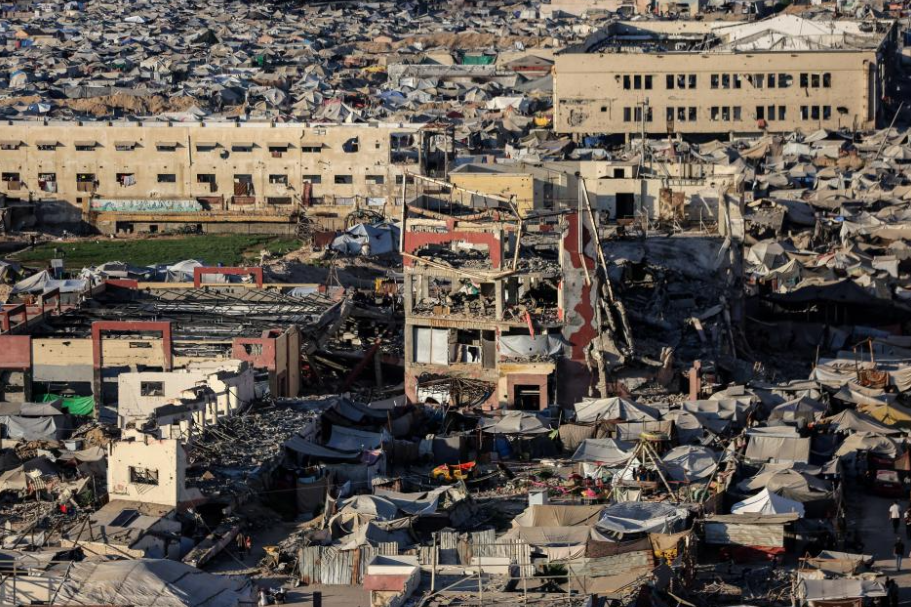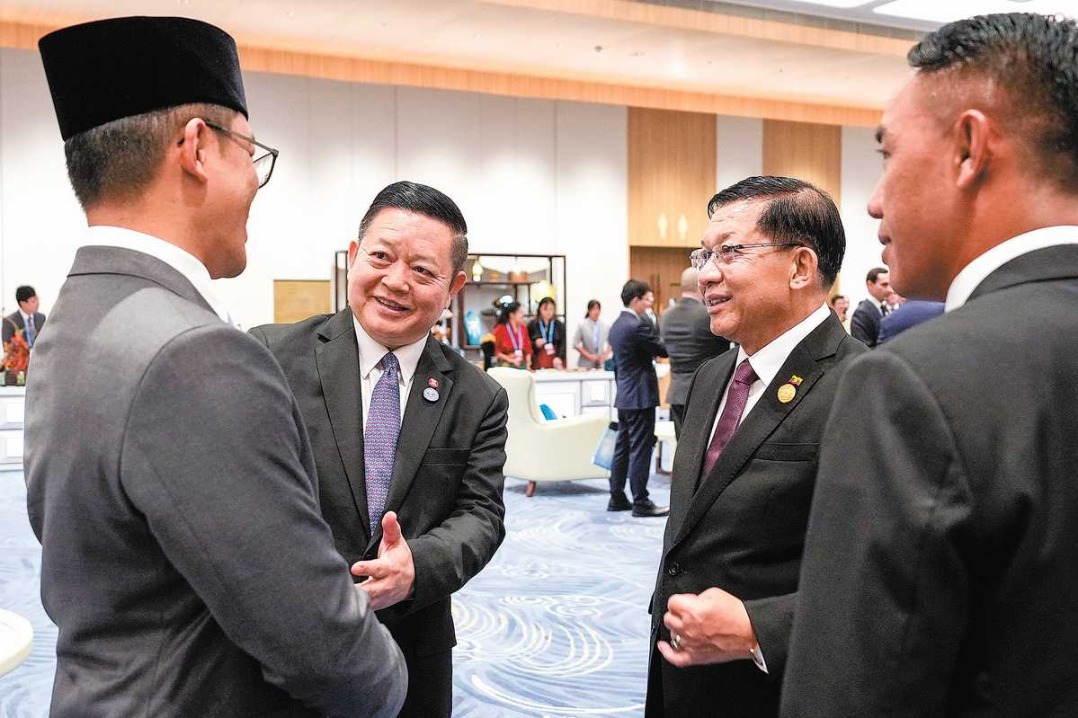US Hegemony and Its Perils

Editor's Note: Xinhua News Agency issued a report on Monday on US hegemony and its perils. Following is the full text.
Contents
Introduction
I. Political Hegemony -- Throwing Its Weight Around
II. Military Hegemony -- Wanton Use of Force
III. Economic Hegemony -- Looting and Exploitation
IV. Technological Hegemony -- Monopoly and Suppression
V. Cultural Hegemony -- Spreading False Narratives
Conclusion

Introduction
Since becoming the world's most powerful country after the two world wars and the Cold War, the United States has acted more boldly to interfere in the internal affairs of other countries, pursue, maintain and abuse hegemony, advance subversion and infiltration, and willfully wage wars, bringing harm to the international community.
The United States has developed a hegemonic playbook to stage "color revolutions," instigate regional disputes, and even directly launch wars under the guise of promoting democracy, freedom and human rights. Clinging to the Cold War mentality, the United States has ramped up bloc politics and stoked conflict and confrontation. It has overstretched the concept of national security, abused export controls and forced unilateral sanctions upon others. It has taken a selective approach to international law and rules, utilizing or discarding them as it sees fit, and has sought to impose rules that serve its own interests in the name of upholding a "rules-based international order."
This report, by presenting the relevant facts, seeks to expose the US abuse of hegemony in the political, military, economic, financial, technological and cultural fields, and to draw greater international attention to the perils of the US practices to world peace and stability and the well-being of all peoples.
I. Political Hegemony -- Throwing Its Weight Around
The United States has long been attempting to mold other countries and the world order with its own values and political system in the name of promoting democracy and human rights.
- Instances of US interference in other countries' internal affairs abound. In the name of "promoting democracy," the United States practiced a "Neo-Monroe Doctrine" in Latin America, instigated "color revolutions" in Eurasia, and orchestrated the "Arab Spring" in West Asia and North Africa, bringing chaos and disaster to many countries.
In 1823, the United States announced the Monroe Doctrine. While touting an "America for the Americans," what it truly wanted was an "America for the United States."
Since then, the policies of successive US governments toward Latin America and the Caribbean Region have been riddled with political interference, military intervention and regime subversion. From its 61-year hostility toward and blockade of Cuba to its overthrow of the Allende government of Chile, US policy on this region has been built on one maxim — those who submit will prosper; those who resist shall perish.
The year 2003 marked the beginning of a succession of "color revolutions" — the "Rose Revolution" in Georgia, the "Orange Revolution" in Ukraine and the "Tulip Revolution" in Kyrgyzstan. The US Department of State openly admitted playing a "central role" in these "regime changes." The United States also interfered in the internal affairs of the Philippines, ousting President Ferdinand Marcos Sr. in 1986 and President Joseph Estrada in 2001 through the so-called "People Power Revolutions."
In January 2023, former US Secretary of State Mike Pompeo released his new book Never Give an Inch: Fighting for the America I Love. He revealed in it that the United States had plotted to intervene in Venezuela. The plan was to force the Maduro government to reach an agreement with the opposition, deprive Venezuela of its ability to sell oil and gold for foreign exchange, exert high pressure on its economy, and influence the 2018 presidential election.
The US exercises double standards on international rules. Placing its self-interest first, the United States has walked away from international treaties and organizations, and put its domestic law above international law. In April 2017, the Trump administration announced that it would cut off all US funding to the United Nations Population Fund (UNFPA) with the excuse that the organization "supports, or participates in the management of a programme of coercive abortion or involuntary sterilization." The United States quit UNESCO twice in 1984 and 2017. In 2017, it announced leaving the Paris Agreement on climate change. In 2018, it announced its exit from the UN Human Rights Council, citing the organization's "bias" against Israel and failure to protect human rights effectively. In 2019, the United States announced its withdrawal from the Intermediate-Range Nuclear Forces Treaty to seek unfettered development of advanced weapons. In 2020, it announced pulling out of the Treaty on Open Skies.
The United States has also been a stumbling block to biological arms control by opposing negotiations on a verification protocol for the Biological Weapons Convention (BWC) and impeding international verification of countries' activities relating to biological weapons. As the only country in possession of a chemical weapons stockpile, the United States has repeatedly delayed the destruction of chemical weapons and remained reluctant in fulfilling its obligations. It has become the biggest obstacle to realizing "a world free of chemical weapons."
- The United States is piecing together small blocs through its alliance system. It has been forcing an "Indo-Pacific Strategy" onto the Asia-Pacific region, assembling exclusive clubs like the Five Eyes, the Quad and AUKUS, and forcing regional countries to take sides. Such practices are essentially meant to create division in the region, stoke confrontation and undermine peace.
- The US arbitrarily passes judgment on democracy in other countries, and fabricates a false narrative of "democracy versus authoritarianism" to incite estrangement, division, rivalry and confrontation. In December 2021, the United States hosted the first "Summit for Democracy," which drew criticism and opposition from many countries for making a mockery of the spirit of democracy and dividing the world. In March 2023, the United States will host another "Summit for Democracy," which remains unwelcome and will again find no support.

































